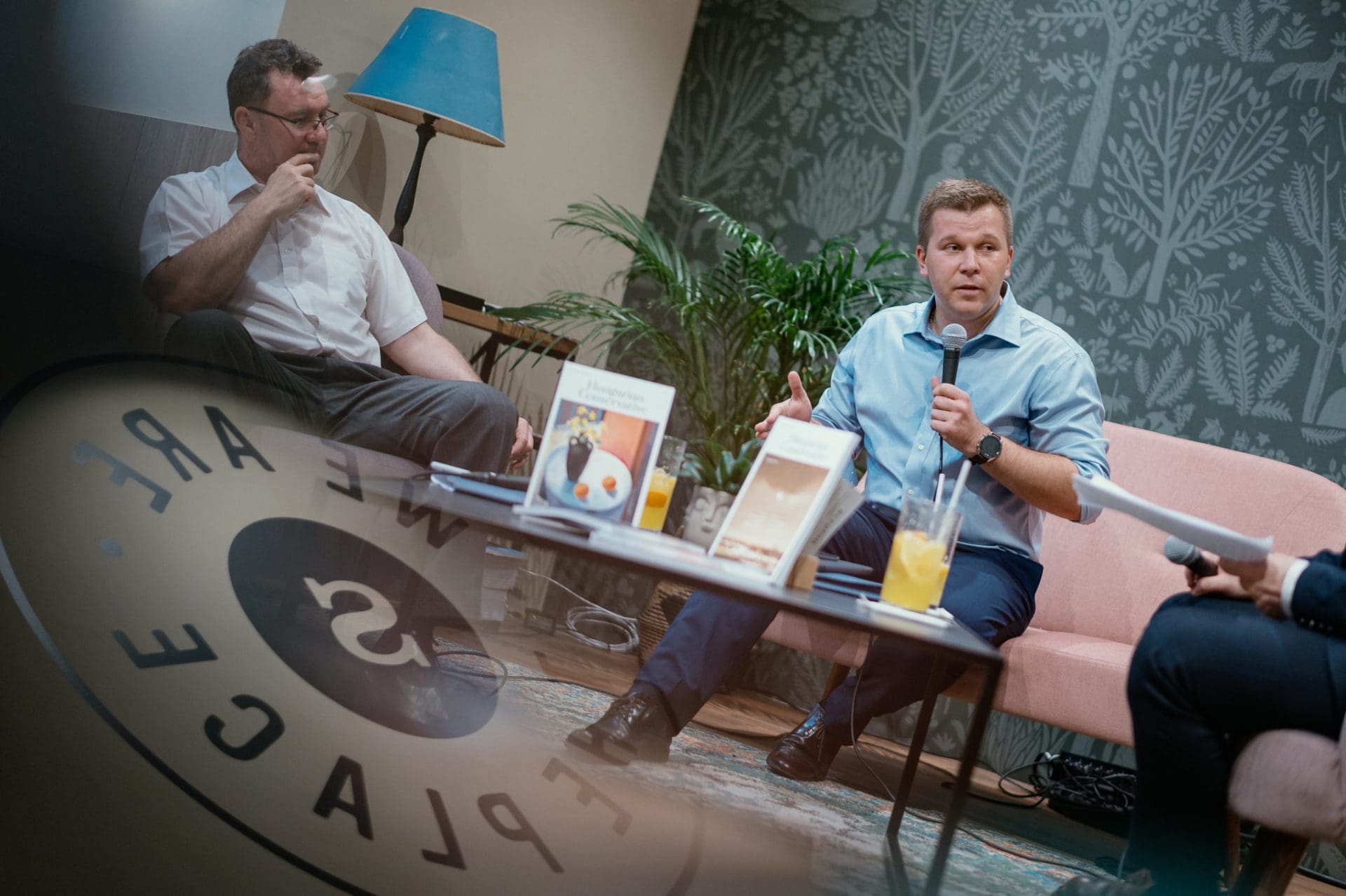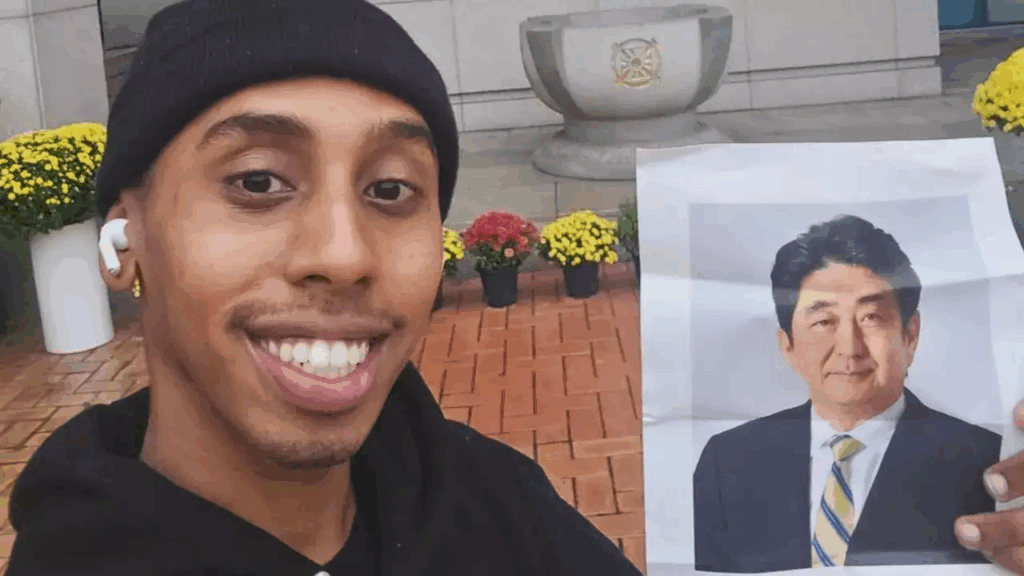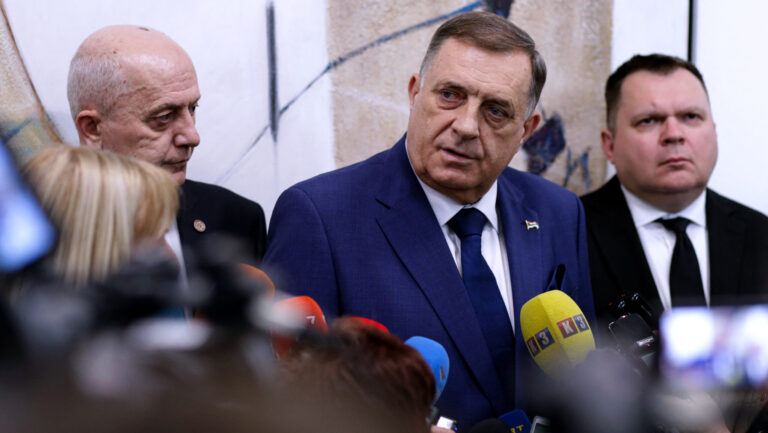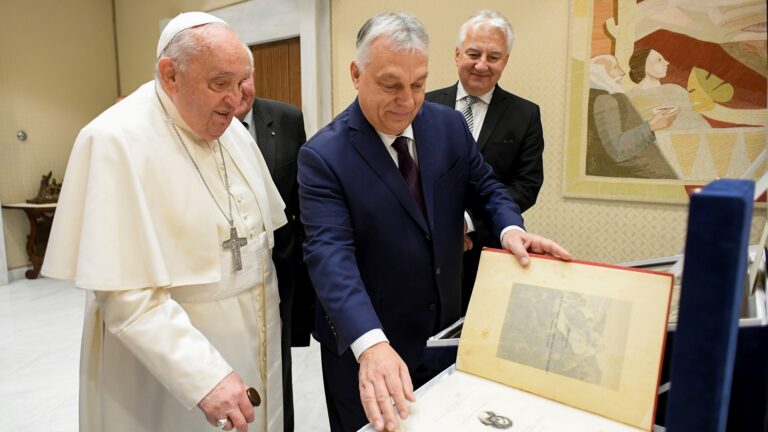The launch of the most recent issue of the Hungarian Conservative magazine took place at the Scruton VP café in the heart of Budapest on 8 June 2022. The event featured a round-table discussion, introduced by Tamás Magyarics, editor-in-chief of the magazine. In his remarks Mr. Magyarics summed up the mission of Hungarian Conservative, first launched at the beginning 2021. The main goal of the bimonthly magazine is to propagate the views of Hungarian conservative authors internationally, especially in the English-speaking world. Since its launch, more than 100 experts, historians and analysts have contributed to the magazine, and their articles were received overwhelmingly positively by international audiences and reviewers. Besides covering topical issues, including those concerning Central Europe, the magazine also features articles on political philosophy, on the often misunderstood history of Hungary and of the rest of the region, as well as interviews and book-reviews.

The speakers of the panel discussion were Anton Bendarzsevszkij, foreign policy expert and journalist, director of research at the Danube Institute and Tamás Pletser, oil and gas Analyst at Erste Bank, while the moderator of the panel was Máté Litkei, director of the Climate Policy Institute at the Mathias Corvinus Collegium. The discussion focused on the current energy crisis, in the context of the recent Hungarian and French elections and the Russian-Ukrainian war. The panelists also provided an expert analysis of Hungary’s energy structure and the challenges and difficulties posed by the inevitable energy transition.
Tamás Pletser stressed that the embargo affects oil derivatives more than crude oil itself, as Russia provides a large proportion of the former
The panelists first discussed the fact that the EU has voted for the oil embargo as part of the package of sanctions against Russia, which can have a huge impact on the European economy. Tamás Pletser stressed that the embargo affects oil derivatives more than crude oil itself, as Russia provides a large proportion of the former. Europe is more flexible in terms of crude oil, as it can turn towards the global market for supplies, but derivatives are difficult to be substituted. As a result, some analysts have warned that a diesel shortage is to be expected in the summer. Mr. Bendarzsevszkij commented that Ukraine is a good case study regarding what happens if Russian supplies are cut overnight, as that is what happened there as soon as the war started. Now the Ukrainians are buying from the European market, but they have a problem accessing diesel, and no only have prices doubled, but there are even shortages. He also highlighted that the sanctions will only come into effect after a transition period, which will be of different length in every country. Sanctions, moreover, will not stop the war immediately, as Russia will be effectively impacted only in a year’s time or even later. In addition, cutting off Russian supplied is not that easy for land-locked countries such as Hungary, as if Russian pipeline imports are banned, seaports become crucial.
Tamás Pletser stated that he opposes oil and gas sanctions, as he doubts their effectiveness. From an economic perspective, he stressed, supply and demand determines everything, and since sanctions focus on crude oil, because that is where Europe can be more flexible, that will not hurt Russia significantly. Mr. Bendarzsevszkij on the other hand highlighted that a large proportion of Russian supplies goes to Europe, so the loss of those markets as a result of the sanctions will definitely hurt Moscow in the long run. As for the war itself, Russia needs weapons, manpower, food, and energy to continue to wage it, all of which they have in abundance. The question is how much Russian society can endure now, especially after it has witnessed an increase in living standards over the last couple of decades. There may be a tipping point where Russians will say enough, and that is what the EU is waiting for, he suggested.

The panelists also discussed that fact that Hungary has taken the lead within a group of countries opposing the embargo. Mr. Bendarzsevszkij opined that there is no political dimension to that decision, it is rather an exercise of pragmatic foreign policy based on Hungary’s economic interests. Not only do Hungarian supplies come through pipelines, but the country also does not have the necessary infrastructure to transform its energy mix overnight. Mr. Pletser agreed, adding that in the background it is always money that determines the course of action, and that MOL is the biggest winner of the contention. He also noted that the moratorium on household utility rates, which remains the number one policy of Fidesz, and is one of the reasons why the party has won the elections again, is dependent on the availability of cheap Russian oil and gas.
The panelists highlighted that Europe will need ten years to decouple from Russia. Alarms had already been sounded regarding Russian energy dependence in 2006 and 2009 because of the Russian-Ukrainians conflicts, then during the Georgian war, and finally due to the annexation of Crimea. But at that time Europe failed to start decreasing its dependency, and now it is trying to do in one year what it should have started doing twenty years ago. With weapon supplies, they were equally promising huge shipments, but then, it never happened. Tamás Pletser stressed that Russia has been a very reliable trade partner to the extent that the molecules always arrived exactly on time, yet it is also true that Moscow is an unreliable political partner. In his view, Germany had become dependent on Russian imports primarily as a result of German industrial actors lobbying for cheap energy, putting pressure on Angela Merkel. Mr. Brendarzsevszkij remarked that timing of the energy transition is very bad. He recalled that Europe has just formulated climate plans to gradually phase out coal, oil, gas, and then introduce renewable solutions, with Germany recklessly shutting down its nuclear power plants, while the share of renewables has remained small.
One the one hand, Europe must secure energy supplies and on the other hand, continue with the green transition
So the green transition has been placed into a different light by the energy crisis. The panelists agreed that Europe now has two tasks ahead at the same time: one the one hand, it must secure energy supplies and on the other hand, continue with the green transition. Most of the time, Mr. Pletser remarked, these two tasks do not go hand in hand, but this time Europe will continue down the path it had embarked on, although this will require more government intervention. Mr. Bendarzsevszkij added that as far as transition to green energy is concerned, this is the best timing possible, as when there is cheap gas available, governments do not have the political will to invest in clean energy.

The discussion was followed by a Q&A session. Asked about the consequences of rising energy prices and their impact on the standard of living, Mr. Bendarzsevszkij noted that while the rise of energy prices had started before the war, people tend to blame it on the sanctions. Tamás Pletser highlighted that what we are facing now is the third energy crisis since the 1970s, which he expects to last a lot longer than the first two did. The global economy requires a lot of energy resources, yet Iran, Venezuela and Russia, the three countries with the largest energy reserves, are all sanctioned. Mr. Pletser added he believed the good news is that the West, as it has done before, will most likely build a better world by the end of the crisis.








